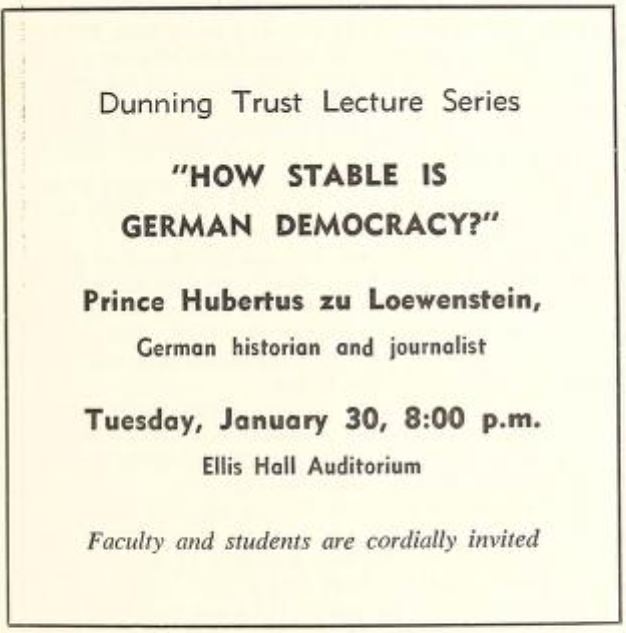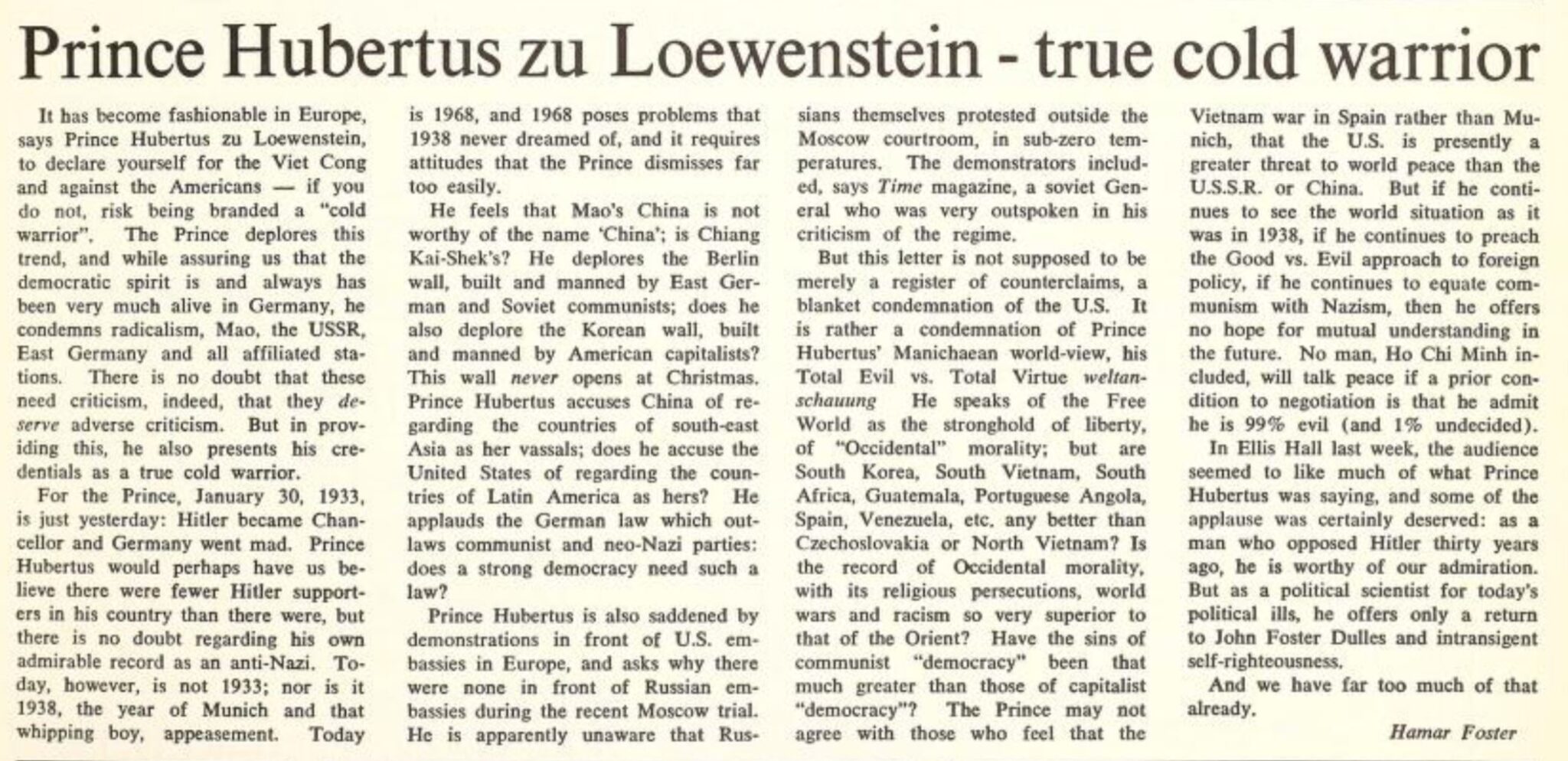
Prince Hubertus Zu Loewenstein was a German historian and journalist, and an early opponent of Hitler. He fled Germany and moved to the United States to promote anti-Nazism in advance of the Second World War. While still in Germany, he was a Member of Parliament. He authored dozens of books and was the head of the Free German Authors’ Association. He died in 1984.
In his lecture, held on January 30, Loewenstein explored Germany’s political atmosphere. It was currently fashionable in Europe to declare oneself anti-American, he explained, to avoid the risk of being labelled a “cold warrior,” but he deplored this practice. He assured his audience that the language of anti-Americanism did not pose a threat to German democracy. He claimed the title of cold warrior himself, and deemed the Western world and the United States to be the stronghold of liberty.
Queen’s student Hamar Foster admired the prince for his anti-Nazi stance thirty years earlier, Foster maintained that the political issues of the 1960s required different tools than a “Good vs. Evil” worldview. In 1967, the prince’s stance offered only “a return to John Foster Dulles and intransigent self-righteousness.”
